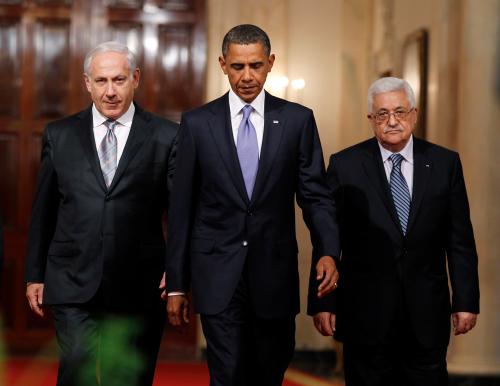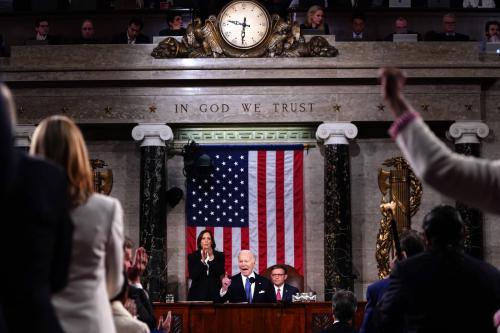

10:00 am EST - 11:30 am EST
Past Event
10:00 am - 11:30 am EST
1779 Massachusetts Avenue, NW
Washington, DC
As the United States gears up for the 2016 presidential race, Americans seem increasingly polarized on issues related to the Middle East, including whether and how to resolve perceived tensions between Israel and the United States. Republican candidates profess support for Israel at almost every opportunity, seeking to capitalize on an apparent partisan gap in support for Israel among the American public. The Israeli prime minister seemingly played into this gap in his fierce opposition to President Obama’s Iran nuclear deal earlier this year. His visit to Washington in November was largely an attempt to overcome this partisan legacy. What is driving these political cleavages, and how are they evolving as the presidential campaign heats up?
On December 4, the Center for Middle East Policy at Brookings launched a new public opinion poll by Nonresident Senior Fellow Shibley Telhami, focusing on American attitudes towards the Middle East. Based on a national sample, the poll also included a substantial sample of Evangelical Christians—enabling an expansive analysis of this increasingly important segment of the American electorate.
Telhami was joined in discussion by Washington Post Reporter Michelle Boorstein and POLITICO Editor Susan Glasser. Tamara Cofman Wittes, senior fellow and director of the Center for Middle East Policy at Brookings, provided introductory remarks and moderated the panel. Following the discussion, the panelists took audience questions.
This event launched the Center for Middle East Policy’s 12th annual Saban Forum, a dialogue on U.S.-Israeli relations.
![]() Join the conversation on Twitter using #Saban15=”font-size:>
Join the conversation on Twitter using #Saban15=”font-size:>
Related Content

Shibley Telhami
December 4, 2015



Aslı Aydıntaşbaş
April 2, 2024

Ryan Hass
March 18, 2024

William A. Galston
March 8, 2024